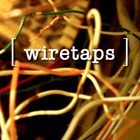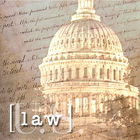
Article I, Section 1, US Constitution: First Amendment to the US Constitution: Seventh Amendment to the US Constitution:
|
OFFICIAL SECRECY POWER UNDERMINES FREE ENTERPRISE CASE AGAINST LUCENT FOR PATENT THEFT DISMISSED DUE TO GOVERNMENT BLACK OP INVOLVEMENT 1 February 2006 In American society, it's worth asking whether secrecy in the hands of the powerful is compatible with representative democracy. That, as a matter of principle, as a matter of legal philosophy, as a constitutional issue. No matter one's position, the issue is mostly muddy water; there is no clear secrecy power under the US Constitution, so all laws relating to it are theoretical expansions of government power over the governed. In the case of the Crater Coupler, the government's assertion of a right to act without the knowledge or consent of the governed, and to conceal all related activities under official secrecy claims, actively allowed a major company to effectively steal a patented invention from its inventor. A court ruling in favor of the government's intervention in a lawsuit in which the government was not even named has now dismissed any claim the inventors had to the right to be compensated for their work by another company that used not only their ideas and their product, but their contribution of work hours. The ruling against the patent holders in September 2005, on the grounds of maintaining government secrecy, is a major new injection of the secrecy power into the private lives of American citizens. The power claimed by the government dates back to the British monarchy, and is the intellectual offspring of a system of absolute monarchy. It was one of the means by which the monarchy kept the power of Parliament (and so of democracy) at bay, while using its lands, its privileges and its rights under the system of taxation to maintain control of a country that was moving toward representative government. The state secrecy power also relates to the causes for which American revolutionaries fought, died and won the nation's liberty. It was against the principle of government action without the consent of the governed that the American revolutionaries staged their campaign, and against the system of unwieldy state power that they would later form their government. So the secrecy power has never been a comfortable fit for American government. But generally, this is a matter of principle, a problem of saying that state secrecy, like eminent domain or the hypothetical suspension of habeas corpus, appears to run directly contrary to all of the fundamental principles of American democracy. Now, with the Crater v. Lucent case, it appears the secrecy power can also generate, if not be directly linked to, corruption. The principle inventor Philip French, has been quoted as saying that when negotiating compensation with Lucent, after a year of collaborative work, with the Crater Coupler under patent protection, Lucent told the patent holders baldly "Well, we don't have to do anything, because this is under some sort of provision for military secret stuff where we don't have to pay anything". That interpretation of the secrecy laws should have been damning in the courts, because it shows that Lucent took a legal provision designed solely to protect the integrity of sensitive covert operations, for operational reasons, and apparently twisted its meaning to describe a free-to-infringe-patents alternative worldview. It would seem that if Lucent had read the law in this way, it would have been at best disingenuous in claiming that the government had hired Lucent, instead of the Crater inventors, and empowered Lucent to take the intellectual property of another business, without anyone's informing that business of the situation. Lucent eventually offered to compensate the inventors with $100,000, but partners of French felt the figure was too low. Lucent stood to make huge profits from the project, but they couldn't have done it at all without Crater. Lucent's position was "we don't have to do/pay anything" to compensate the patent-holders. It would seem, from the Crater account of events, at the very least that there is some possibility the Lucent position sought from the start to take cover under official secrecy laws, and that, possibly, in the end, those laws were used to impose upon the other party in the commercial relationship a rate far below what would have been asked. This should be enough to give the case a hearing in federal court on patent-infringement grounds. The Bush administration —as had the Clinton administration in 1999, in the person of then Secretary of the Navy, Richard Danzig— intervened in the case, citing official secrecy privileges in judicial precedent, and claiming that a full hearing of the case would run the risk of compromising vital security-related "black" or covert operations. The court apparently agreed and denied Crater its right to seek redress of grievances under the Constitution. The official secrets power has never been enacted or approved by Congress. It exists solely as a residue of British common law, and came into legal force in the United States only by way of a Supreme Court ruling in 1953, in the case of U.S. v. Reynolds. According to Wired News "In Reynolds, the widows of three men who died in a mysterious Air Force crash sued the government, and U.S. officials tried to quash the lawsuit by claiming that they couldn't release any information about the accident without endangering national security. The Supreme Court upheld the claim, establishing a legal precedent that today allows the executive branch to block the release of information in any civil suit — even if the government isn't the one being sued." William Weaver, adviser to the National Security Whistleblowers Coalition and professor of political science at the University of Texas, says the US government invoked the secrecy privilege only 4 times in the 23 years after Reynolds. But the 1970s, with the Watergate prosecutions, became a watershed, and the government began to use the privilege much more broadly. Between 1977 and 2001, the government invoked the state secrecy privilege in 51 civil cases, succeeding in every case. Weaver told Wired News he believed this was related to expanded oversight by Congress of presidential and executive activities and the desire of presidents to find ways to keep certain elements of their work from public scrutiny. Upon the 1999 intervention by Clinton's secretary of the Navy in the case, Judge E. Richard Webber immediately granted the government's request to conceal documents from the plaintiffs. Wired News reports: "In the legal battle that followed, it emerged that the order covered an astonishing 26,000 documents — some of which were not only unclassified, but had already been entered into the public record. In 2002, Webber examined those documents in chambers, and concluded that not one of them would be available for Crater's use in pressing its case." Even documents related to a presentation given by Lucent, in which it publicly "showed off" the Crater Coupler, were barred from evidence. Such documents could help Crater demonstrate that, regardless of state secrets, Lucent was indeed using its patented product in order to profit from a government contract. It is not clear at all why any classified information would need to be presented to substantiate this far more relevant evidence. In 2004, the Bush administration used the secrecy privilege to "silence" Sibel Edmonds, an FBI whistleblower who went public with allegations of security breaches, misconduct and incompetence in the Bureau's translation department. In 2005, the privilege was applied to the case of Maher Arar, a Canadian citizen born in Syria who in 2002 was detained at JFK airport in New York and sent to Syria, where he was imprisoned and tortured for one year. Under American and international law, Arar's detention without charge and "extraordinary rendition" was a case of kidnapping, and the apparent use of the tactic to facilitate torture was also a crime, but the entire affair is barred from any hearing in US courts due to the Bush administration's invoking the official secrecy privilege, not itself embodied in any American law. Prof. Weaver says that while other presidents have used the power, and faults Pres. Carter for being the first to use it with frequency: "This presidency is the first one in history to use the secrecy privilege in a programmatic, organized comprehensive policy... It's the first secrecy presidency." While little is known about the details of many of these cases, it is clear from what is known in the public record that in the Sibel Edmonds case, the Arar case and the case of workers suing the government over exposure to toxic chemicals in an illegal disposal at "Area 51", that the secrecy privilege was invoked in a way that ended inquiries into criminal activity by agents of the government. In legal terms, that is the biggest problem with the privilege. It has been used broadly and successfully by the government to override many legal requirements for the constitutionally established system of due process, access to the courts and many fine points of subsequently passed criminal law, even though it —the official secrecy privilege— has no basis in the US Constitution or the US Code and has never been approved by Congress. Despite its being established as a well-used precedent referred to by the judiciary, the secrecy privilege continues to conflict substantially with other areas of US federal and constitutional law, and its application in the Crater v. Lucent case demonstrates the extreme ways in which its logic can be stretched or molded to expand government powers and limit the rights of individuals. [s]
BACKGROUND: The US Department of Justice, under Attorney General Alberto Gonzales, who advised Pres. Bush as White House Counsel, during the planning of the extrajudicial wiretaps, has issued a 42-page report that claims authorization for the wiretaps was implicit in the preliminary "Authorization for the Use of Military Force" (AUMF), passed after the attacks of 11 September 2001. [Full Story] FMR VP AL GORE GIVES 'TRANS-PARTISAN' SPEECH ON DANGERS OF EXTRA-CONSTITUTIONAL ABUSES Former US Vice President Al Gore gave what is being described as an historic non-partisan speech, calling for a passionate nationwide movement to defend and uphold the Constitution of the United States. Gore gave the speech in a non-partisan context, speaking at the Daughters of the American Revolution hall, with the express support and participation of Representative Bob Barr, Republican of Georgia. [Full Story] |
||||||
|
|||||||

